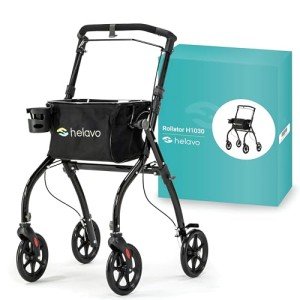What The 10 Most Stupid Elderly Walker Fails Of All Time Could Have Been Prevented
The Importance of Elderly Walkers: Enhancing Mobility and Independence
As individuals age, their bodies go through various changes that may impact their mobility. Conditions such as arthritis, osteoporosis, and other persistent conditions can make browsing the environment challenging for the elderly. Thankfully, assistive gadgets like walkers can considerably enhance mobility, guaranteeing that seniors keep their self-reliance and quality of life. Comfortable Walker will explore the various types of walkers readily available, their benefits, and important factors to consider when choosing the ideal one.
Understanding the Different Types of Walkers
A walker can supply the needed support for seniors having a hard time with mobility. Nevertheless, not all walkers are developed equal. Here's a thorough breakdown of the different types of walkers readily available.
Kind of Walker
Description
Best For
Standard Walker
A lightweight frame with four legs supplying basic support.
Individuals requiring assistance while walking.
Two-Wheeled Walker
A walker with 2 wheels at the front enabling for easier movement.
Users who require more mobile support for faster walking.
Four-Wheeled Walker
A rollator with four wheels, brakes, and a seat.
Active seniors who need more mobility and a place to rest.
Knee Walker
A specialized walker with a padded platform for resting the knee.
People recuperating from foot or ankle injuries.
Folding Walker
A walker that can be collapsed for easy storage and transport.
Seniors needing convenience when traveling.
Table 1: Types of Walkers
Advantages of Using a Walker
Walkers provide a wide range of benefits for seniors, consisting of:
- Enhanced Stability: Walkers provide extra support to the user, assisting to promote self-confidence while walking.
- Improved Balance: With a walker, seniors can rearrange their weight, enhancing balance and lowering the threat of falls.
- Increased Independence: Users can walk around their homes and communities more conveniently, permitting them to take part in social activities.
- Decreased Pain: Walkers can decrease the effect on joints and muscles, making movement less painful for conditions like arthritis.
- Flexible Usage: Walkers appropriate for various environments, whether inside your home, outdoors, or on uneven surfaces.
Table 2: Benefits of Using a Walker
Picking the Right Walker
Selecting the ideal walker is vital to maximizing mobility and ensuring convenience. Here are some considerations:
- Weight Capacity: Ensure that the walker can support the user's weight. The majority of walkers have actually a defined weight limit.
- Height Adjustment: Adjustable height features guarantee that the walker is set to the appropriate level for the user's height, promoting excellent posture and comfort.
- Wheels vs. No Wheels: Depending on the user's abilities and environment, a walker with wheels might be more beneficial for motion, while a non-wheeled walker may offer more stability.
- Extra Features: Some walkers come with integrated seats, storage, or accessories (like cup holders) that can enhance user experience.
Table 3: Considerations for Choosing a Walker
Upkeep of Walkers
Appropriate maintenance of walkers is essential for guaranteeing security and durability. Here are some fundamental upkeep ideas:
- Regular Inspections: Check for cracks, rust, or loose screws and ensure that the rubber pointers on the legs are undamaged.
- Wheel Maintenance: Ensure that wheels move freely and are not stuck; lube them if essential.
- Modifications: Periodically examine if the height and settings stay proper, adjusting them as necessary to keep user comfort.
Table 4: Maintenance Tips for Walkers
FAQs About Elderly Walkers
1. What is the average expense of an elderly walker?
The prices of walkers can vary significantly based on the type and features. Requirement walkers might cost between ₤ 50-₤ 100, while specialized walkers or rollators can vary from ₤ 100 to ₤ 300.
2. Are walkers covered by insurance?
Many insurance plans, including Medicare, cover the expense of walkers, supplied they are deemed medically necessary. It's vital to talk to your insurance coverage provider for specifics.
3. How do I know when my enjoyed one requires a walker?
Signs might consist of difficulty walking independently, frequent falls or near-falls, and increased tiredness while performing daily activities. A healthcare expert can supply a comprehensive evaluation.
4. Can walkers be utilized outside?
Yes, lots of walkers can be utilized both inside and outdoors. If preparing to utilize a walker outdoors, consider a design with wheels or larger legs for stability on numerous surfaces.
5. How long can a walker last?
With appropriate maintenance, a great quality walker can last for numerous years, though wear and tear will vary depending upon use frequency and conditions.
Walkers are vital tools that can bring back mobility and self-reliance for seniors while guaranteeing their safety. As people live longer and lead active lifestyles, purchasing correct assistive gadgets like walkers is more crucial than ever. Comprehending the kinds of walkers readily available, their benefits, and how to pick the ideal one can empower users and their caregivers to make informed options. Eventually, the right walker can result in enhanced quality of life, permitting aging individuals to stay active individuals in their neighborhoods.
